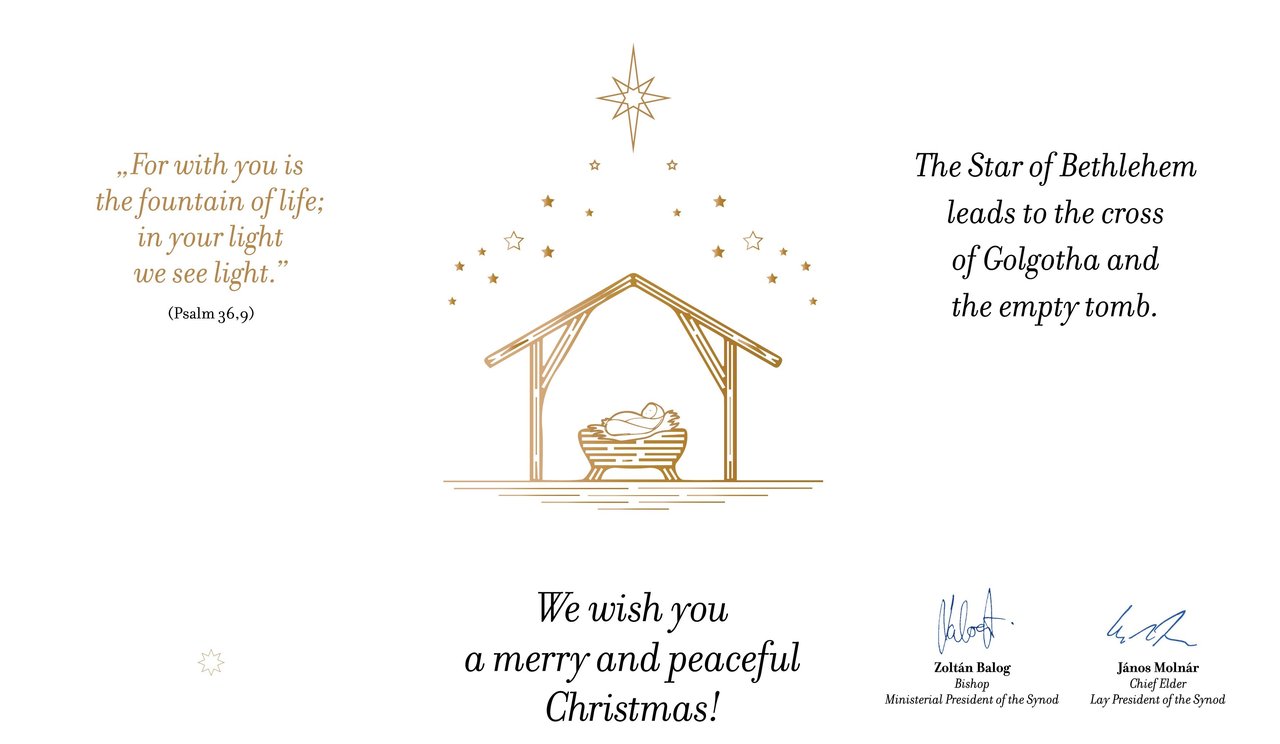Our loving God has planted all kinds of trees in Eden, and in the middle of the Garden He planted the tree of life and the tree of the knowledge of good and evil. From the very beginning, the Creator set a condition and commanded the man, “You are free to eat from any tree in the garden; but you must not eat from the tree of the knowledge of good and evil, for when you eat from it you will certainly die.”
It is the tree of wisdom, the knowledge that can distinguish between right and wrong, true and false, important and unimportant, urgent and casual, light and dark. Already in the Garden of Eden, God wanted to prevent man from confusing these things, expecting him instead to rely on his divine wisdom. Because life changes, circumstances change. Time and time again, we find ourselves in surprising, unprecedented situations. Decisions have to be made. What do we do? Do we scramble around, or do we have an advisor helping us find our way in this increasingly confusing world? Wisdom is the ability to discern, and this wisdom is granted by the Word of God. It alone can protect man from all the failures, the consequences of his delusion and his foolishness.
In the same place, an arm's length away, was the tree of life. If man had chosen wisely, he could have freely harvest from it; eternal life was within reach. God's intention that man, like him, should live forever, was evident in the moment of creation. But the Word of God reveals that we, from the very beginning of humankind, have been rather inclined to disobey, and abandon the great opportunity of the inheritance of our life. We preferred darkness to light, evil to good, falsehood to truth, casual to important.
It was obvious to God that man had something to hide. He seeks the hiding places of darkness to cover his evil deeds, hides from God, and when called to account, denies and blames others.
What should be the fate of his creatures who made the bad decision from the start, made the wrong choice?
He could have chosen to ignore us, rightly turning his back on us for our sins. Nothing obliged him, nothing forced him, yet in his love for us he chose to save us and prepare our redemption.
He chose to send light where there is darkness. For God loves sinful man, but hates sin and darkness, and in his love he wants to save us from what separates us from him, causing our death, so that we may have life and march in his light. He turned to us in love, became in Christ entirely like us, identified himself with us, came where we live; in the midst of our human torments, to suffer the evils of our hypocritical lives. This is God's Christmas surprise. The very purpose of his heart is that the world should not perish but be saved; that man should not come to damnation but to salvation, if they believe in Him.
The Son, the Word incarnate, did not come to judge, still, whoever does not believe in him, will still come to judgment, because he consciously reject the eternal life offered to him. Judgment is already taking place in the one who chooses darkness. We want to keep our deeds in the dark because they are evil, and we know well that our corruption must be hidden. Let us now, in the silent waiting and longing of Advent, be accused of these deeds kept in darkness. Let us repent of all the things we otherwise hide from each other, for they are not deeds pleasing God and acts according to his will. A life in harmony with God seeks the light. Those who are right before God have nothing to hide.
The corruption of the world is so great that only the love of God can surpass it, and He does nothing less than offering himself in his Son for the world. God loves this world. He loves you so much that he gave his Son for you! Christmas magnifies this love, demonstrates and revels the gospel; “for God so loved the world that he gave his one and only Son, that whoever believes in him shall not perish but have eternal life.”
The reflection was originally published in Reformátusok Lapja, the weekly magazine of RCH.
